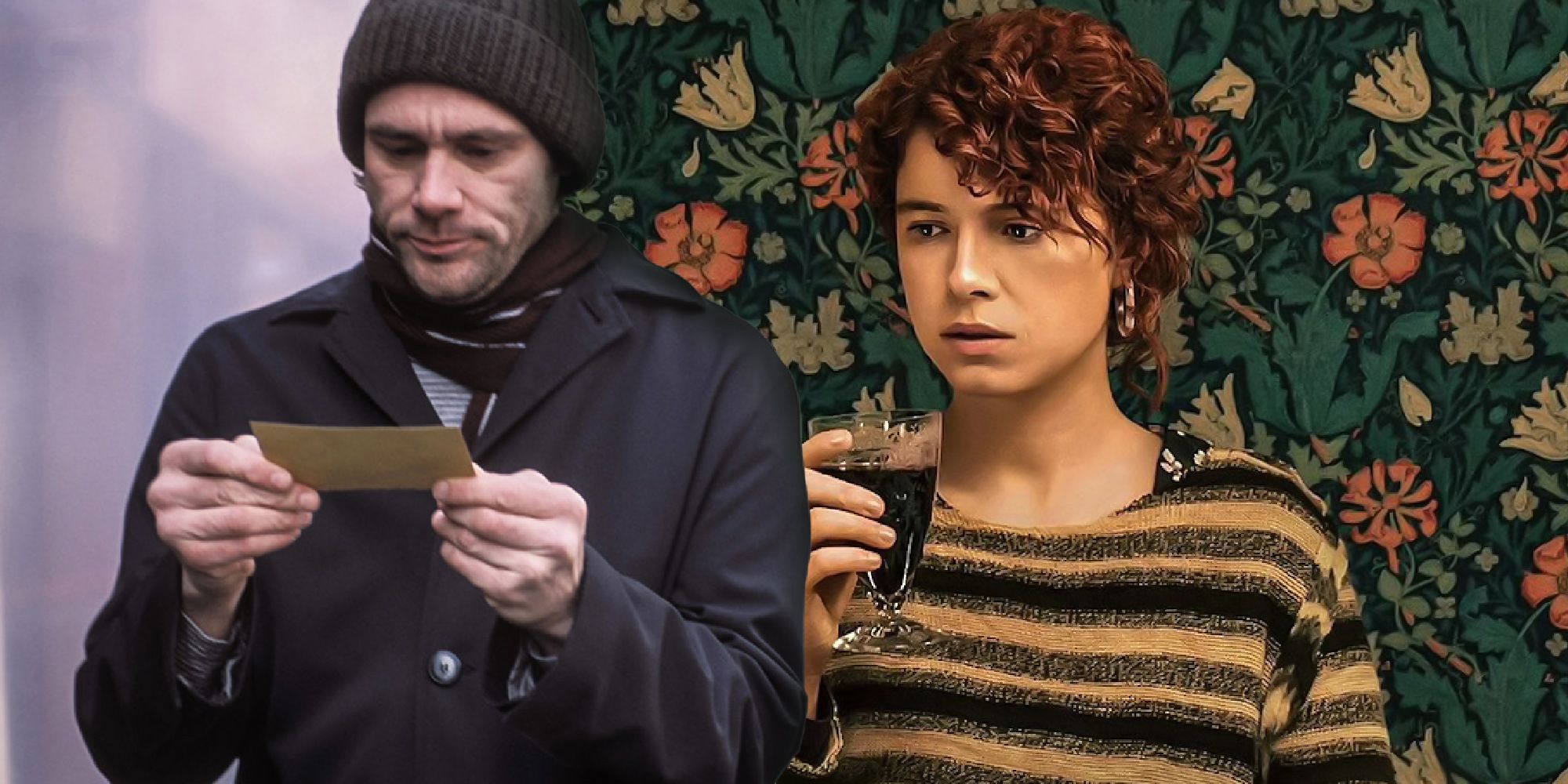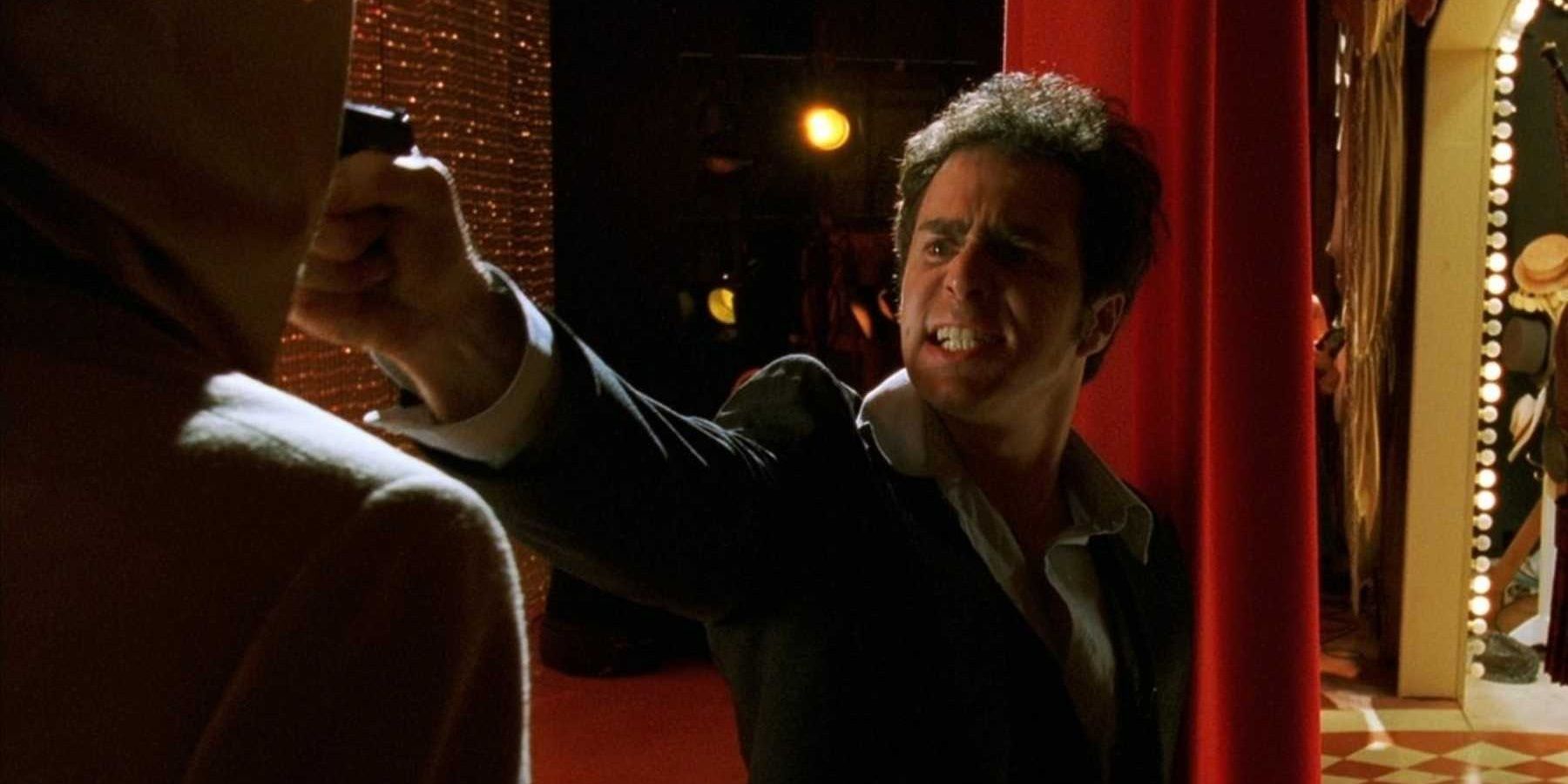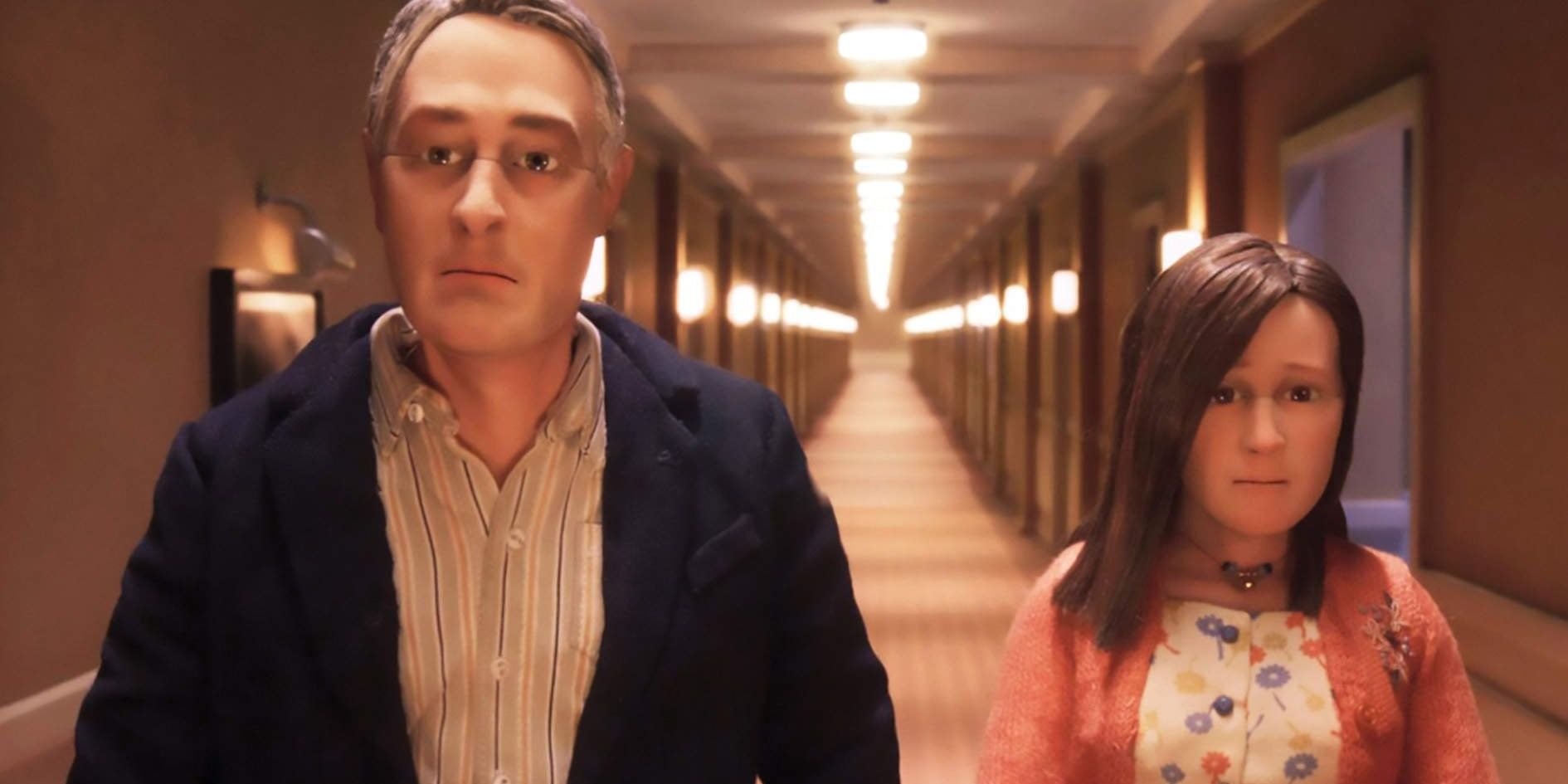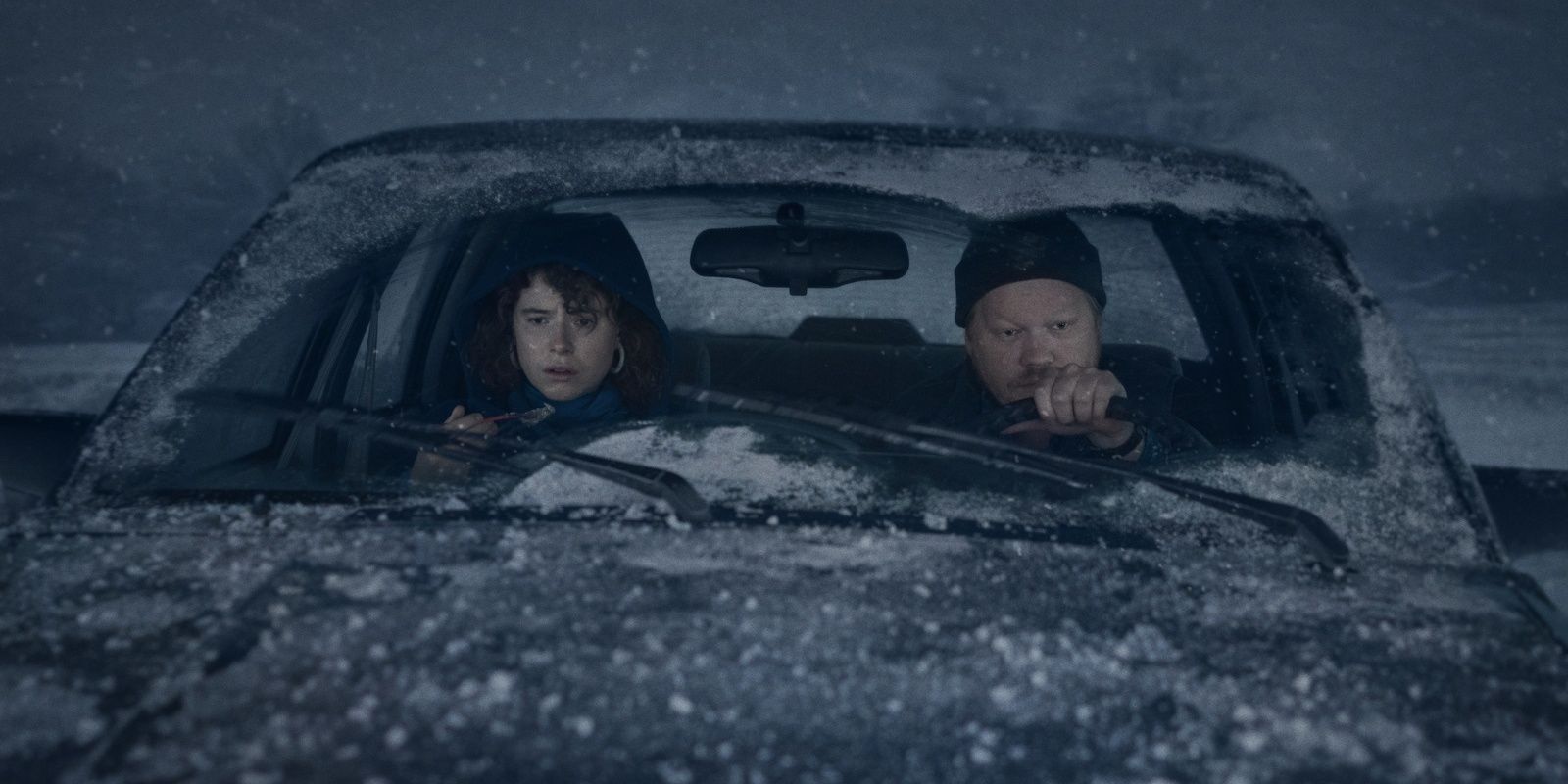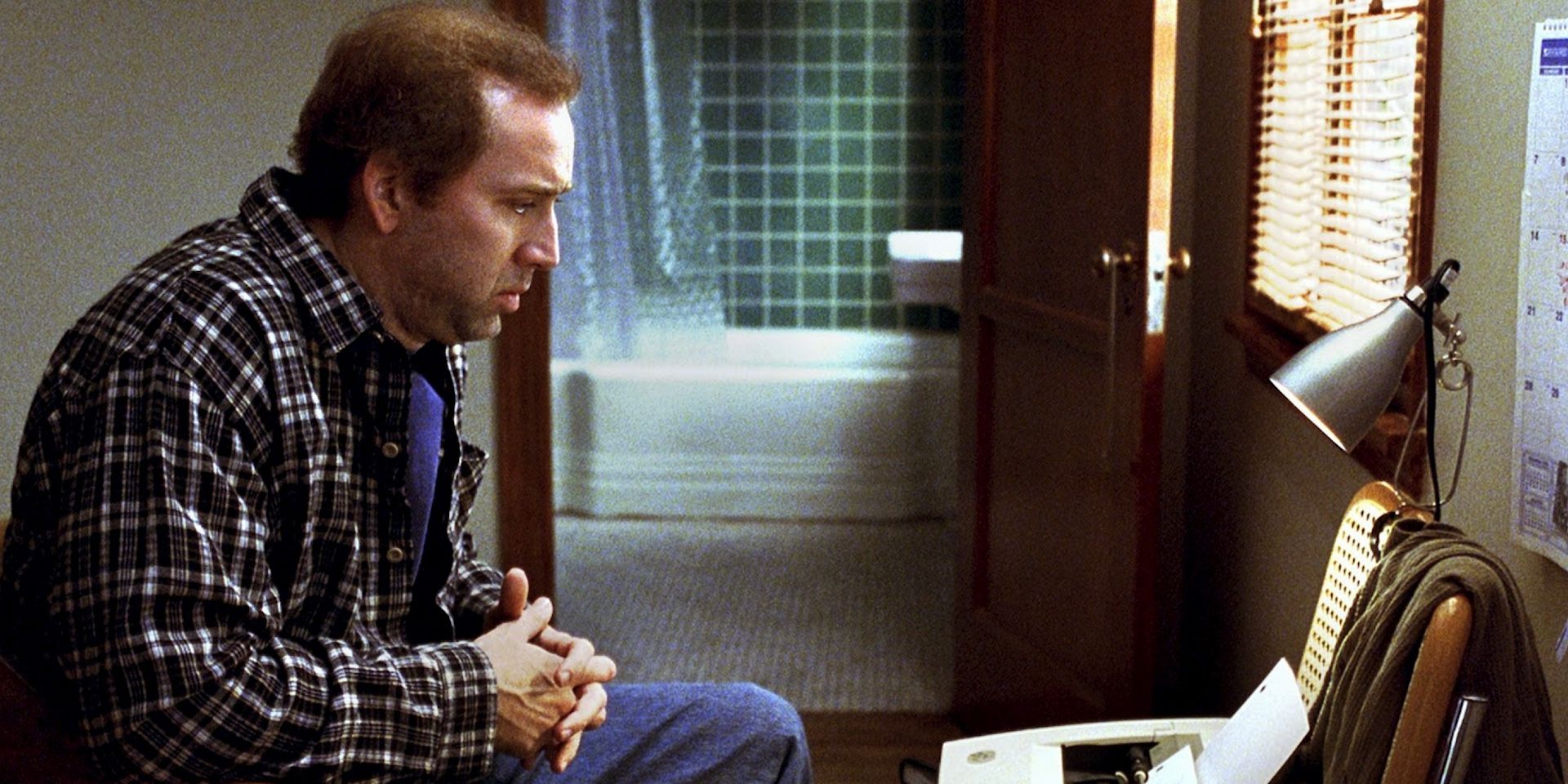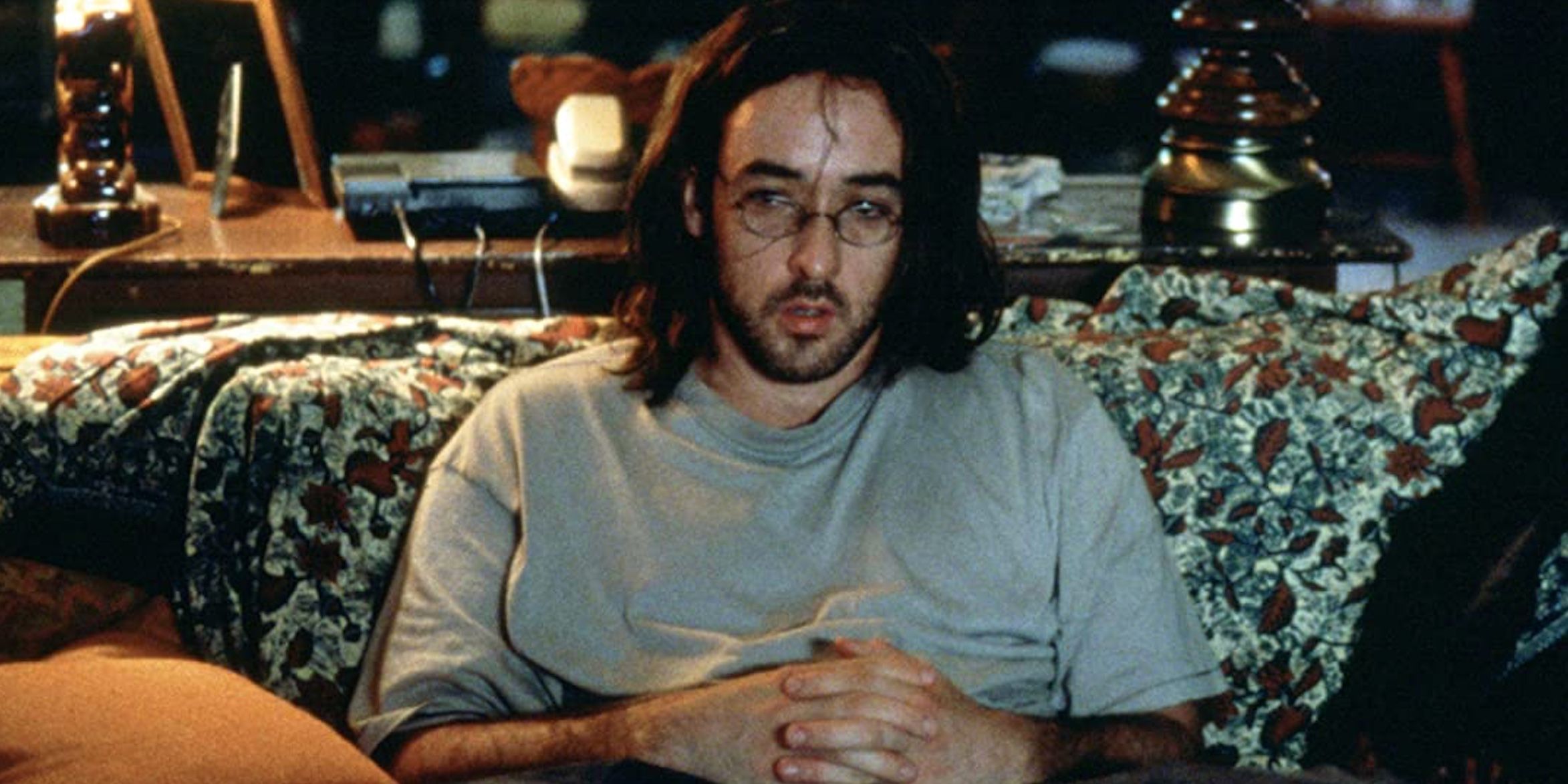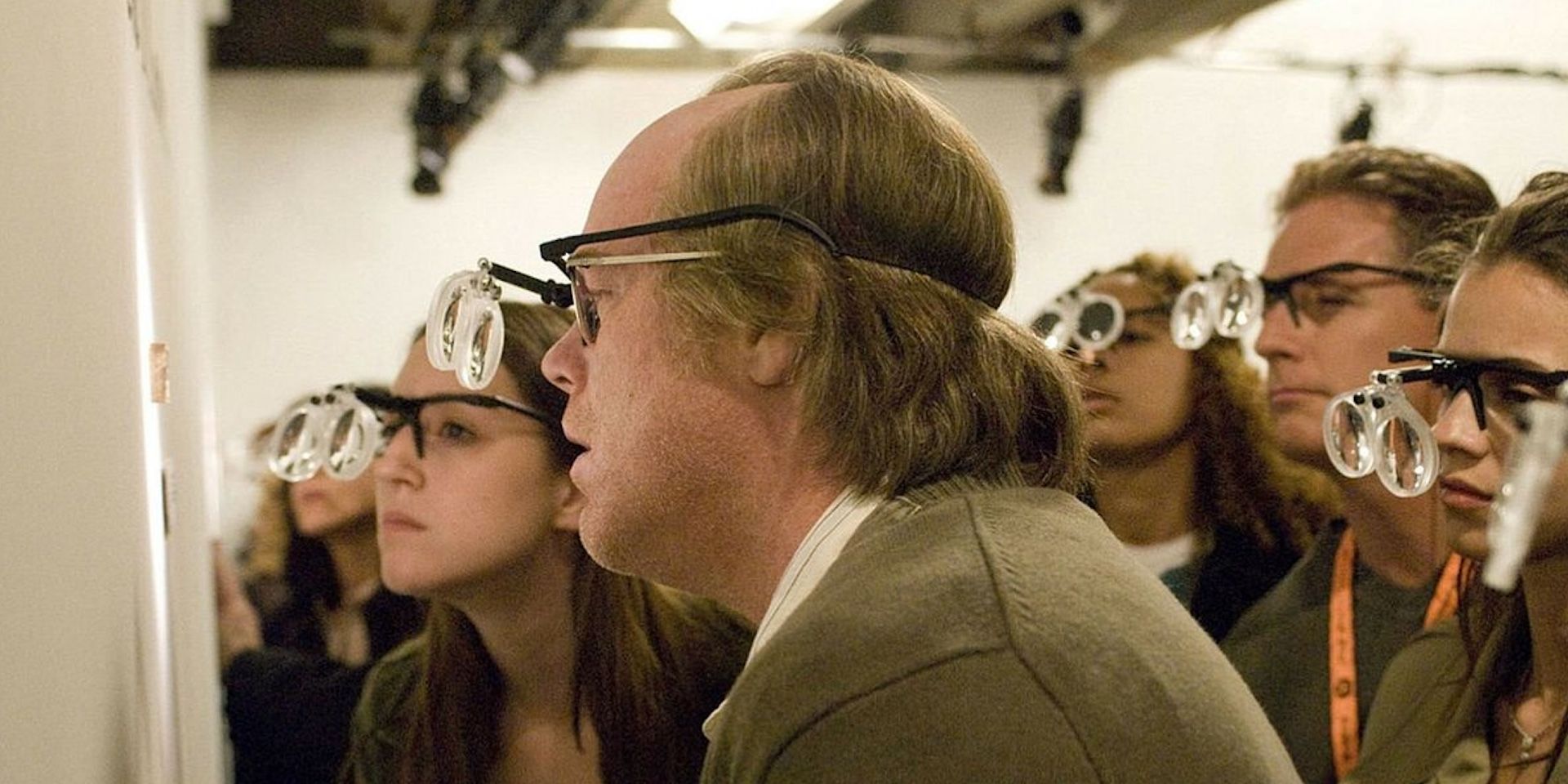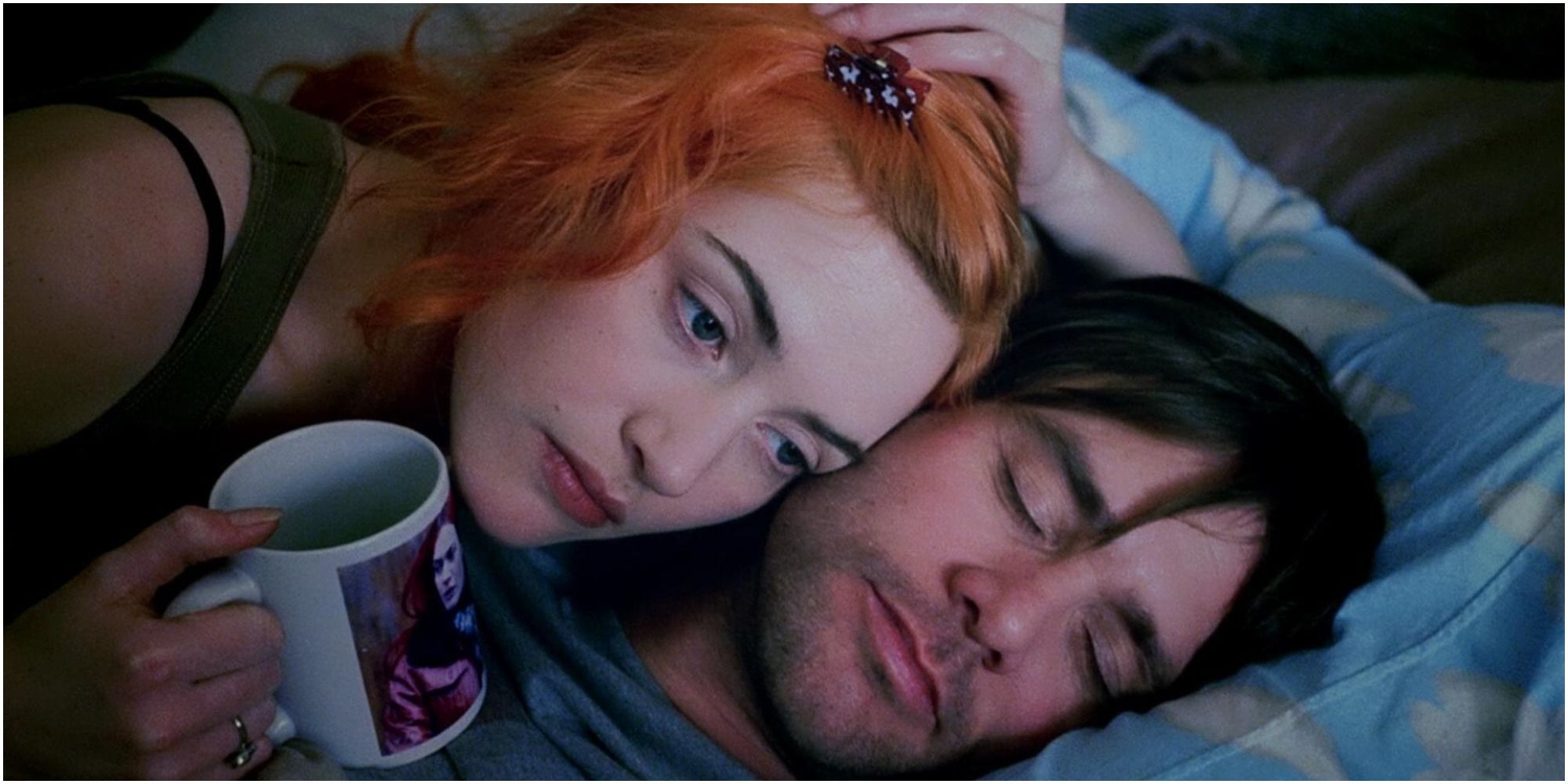Charlie Kaufman is one of the 21st century's most innovative filmmakers, so which of his movies is the best? After working as a television writer during the '90s, Kaufman crossed over into cinema by writing the 1999 meta classic Being John Malkovich. Since then, he's evolved into a well-respected director, evidenced most recently by the 2020 Netflix drama I'm Thinking of Ending Things.
Kaufman's films don't alway resonate with mainstream audiences, but they often raise questions about human psychology. With each film, Kaufman and his collaborators tend to incorporate philosophical concepts and then apply them to the day-to-day routines of characters. Being John Malkovich centers on celebrity adoration, Adaptation focuses on creative fears, and Synecdoche, New York examines the totality of life. In addition, Kaufman films like Human Nature, Confessions of a Dangerous Mind, Eternal Sunshine of the Spotless Mind, Anomalisa, and I'm Thinking of Ending Things similarly explore psychological concepts through characters who lose themselves in their own thoughts. With each production, though, the narratives aren't grounded by just one central concept, but rather a variety of ideas that stem from Kaufman's mental conditioning.
Like so many enduring classics, Kaufman's films can be interpreted differently with each re-watch. A high school or college student may initially be drawn to the surrealistic narratives, but then grow to appreciate the character psychology. Older viewers may be drawn to the exploration of relationship themes, but then pay closer attention to the subtext about specific characters. Here's every movie that Kaufman has written and/or directed, ranked worst to best.
8. Human Nature (2001)
Directed by Michel Gondry and written by Kaufman, Human Nature functions as a primer for the duo's magnificent 2004 collaboration Eternal Sunshine of the Spotless Mind. The film stars Patricia Arquette as Lila Jute, a woman who struggles with self-confidence issues because of a hormonal imbalance that makes her grow lots of body hair. Meanwhile, Puff (Rhys Ifans) grows up in the outdoors and believes that he's an ape. The narrative wildcard is Dr. Nathan Bronfman (Tim Robbins), a virgin psychologist with deep-rooted and unresolved psychological issues from childhood. Nathan attempts to carry on a relationship with Lila, but their different perspectives on human nature create a divide.
Human Nature marks the directorial debut for Gondry, and it shows. Previously, the French filmmaker helmed numerous classic music videos for bands like The White Stripes, Daft Punk, and Radiohead, but Human Nature often feels disjointed with its overall tone and structure, which naturally affects the flow of Kaufman's script and how certain jokes land. The surrealism allows for plenty of laugh-out-loud moments, and the performances are purely entertaining, yet there's a lack of warmth to the narrative. The characters don't necessarily feel cold and inaccessible, but they're just bizarre enough to steadily remind the audience of the film's inherent absurdity. Gondry and Kaufman do indeed aim high, and eventually correct their mistakes with their follow-up collaboration three years later.
7. Confessions of a Dangerous Mind (2002)
Based on Chuck Barris' eponymous 1984 book, Confessions of a Dangerous Mind is another Kaufman film that features a first-time director in George Clooney. Whereas Human Nature lacks visual style, this 2002 spy comedy is slick and aesthetically vibrant. American actor Sam Rockwell stars in the lead role as a real-life TV host who becomes an assassin for the U.S. government. Part of the film's charm stems from the unreliable narrator premise, as it's never entirely clear if Barris merely imagines himself as an international spy figure or if he actually did the work. Produced for $30 million, Confessions of a Dangerous Mind barely outperformed its budget at the box office, but serves as another example of Kaufman's unique thematic approach.
Every Wes Anderson Movie Ranked From Worst To Best
As with most Kaufman scripts, Confessions of a Dangerous Mind is fundamentally about an adult man overcoming his emotional insecurities. Barris is a true Hollywood professional, so much so that he must often defend his reputation for pushing the norms of network TV. In his private life, Barris can't quite find happiness or someone who appreciates all the complexities of his lifestyle. Kaufman appears to stay faithful to Barris' experiences while incorporating his own spin on the human element. The final irony is that Barris finds love and confesses his sins, only to be laughed at by his bride due to the complete absurdity of his claims. And therein lies the Kaufman touch: redemption though reflection and acceptance. Barris is just one of many Kaufman characters who thinks too damn much about what could go wrong.
6. Anomalisa (2015)
With Anomalisa, writer-director Kaufman strips everything down to the basics. The film mostly takes place within a Cincinnati hotel called The Fregoli, and the characters are all stop-motion animation puppets. Kaufman's story follows author Michael Stone (David Thewlis), who struggles to maintain meaningful relationships and begins to view people as being different variations of the same person; a concept that's know as the Fregoli delusion (hence the name of the main setting). Michael's perspective changes when he meets a female anomaly named Lisa (Jennifer Jason Leigh), a woman with confidence issues who seems to appreciate the little things in life. Anomalisa was co-directed by Duke Johnson, a stop-motion specialist.
Anomalisa doesn't match the production scope of Kaufman's most poignant films, but it effectively deconstructs the psychology of a man who has become emotionally numb. Just like Kaufman, Michael is a true professional who seemingly understands how to enlighten individuals, yet he's unable to live a truly happy life due to his emotional detachment from loved ones. Michael and Lisa bond because there's a mutual attraction, but they both seem to know that external forces will keep them apart. And so Kaufman pinpoints not the tragedy of failed relationships, but rather the insight that can be gained by allowing oneself to be vulnerable and open-minded. Lisa gains what she needs for her next relationship, and Michael receives an important reminder that it's OK to stray from routines. As the title suggests, Anomalisa celebrates all the human anomalies that make life so exciting and unpredictable.
5. I'm Thinking Of Ending Things (2020)
Written and directed by Kaufman, I'm Thinking of Ending Things arrived on Netflix in August 2020 without much hype. The storyline has all the heart of Anomalisa, only everything is amplified through the performances of Jessie Buckley and Jesse Plemons. Together, they portray characters whom are stuck in the subconscious of an aging and suicidal janitor. I'm Thinking of Ending Things initially plays out like an art house relationship drama, yet the character dialogue implies that there's much more to the story. When the young woman with different names (Buckley) meets the parents of Jake (Plemons), it becomes clear that all parties involved are at the mercy of Father Time and an elderly man's roaming mind as he thinks about, well, ending things. Kaufman's film is based on Iain Reid's eponymous 2016 novel.
I'm Thinking of Ending Things doesn't quite have the charm of Anomalisa or the emotional depth of Eternal Sunshine of the Spotless Mind, but Kaufman's script is indeed loaded with heavy philosophical concepts associated with regret and nostalgia. And once again, Kaufman's settings are metaphors for the human mind, as the car driven by Buckley and Plemons' characters essentially roams though the subconscious of the real-life protagonist, Jake, while the home of young Jake functions as a pyramid of deteriorating memories. In this Kaufman film, the script benefits from the outstanding performances from Buckley and Plemons, along with those provided by Toni Collette and David Thewlis as Mother and Father, respectively. I'm Thinking of Ending Things - and in particular its ending - will indeed polarize Netflix audiences, but Kaufman's multi-layered narrative will also challenge viewers to reconsider the possibilities of cinema.
4. Adaptation (2002)
Adaptation builds upon the neurotic, meta premise of Kaufman's feature debut script for Being John Malkovich. Both projects were directed by Spike Jonze, whose polished filmmaking boosts all the eccentricities of Kaufman's characters. The storyline is based on Susan Orlean's 1998 book The Orchid Thief, with the narrative twist being that Nicolas Cage plays a version of Kaufman trying to working out the premise for his adaptation. Cage also has a second role as Kaufman's fictional brother Donald, an aspiring screenwriter who approaches his craft much differently than Charlie. Just as Being John Malkovich has a wink-of-the-eye element, Adaptation similarly invites the audience to embrace the bizarre premise and all the black humor that derives from Charlie's creative anxiety.
Structurally, Adaptation is a brilliant piece of writing. Kaufman incorporates his real-life experiences, and takes a big risk by literally doubling down with a story that's mostly about his creative insecurities, as opposed to a faithful adaptation of Orlean's work. And with Cage in dual roles, the filmmakers have the ideal performer to amplify all of Kaufman's real-life quirks. The narrative initially plays out like a meta homage to all the original storytellers of the movie industry, but Kaufman curiously shifts to traditional Hollywood tropes with his final act suspense. And the approach works because of the brilliant supporting cast including Meryl Streep and Chris Cooper, both of whom essentially headline their own story within the primary narrative. Adaptation didn't become a box office sensation and allow Kaufman to work with a higher budget, but his follow-up film - Eternal Sunshine of the Spotless Mind - confirmed that he's at his best when working with a modest budget, high concept narratives, and acclaimed performers who are thrilled to be part of a Kaufman production.
3. Being John Malkovich (1999)
Much like late '90s movies such as Fight Club and The Usual Suspects, Being John Malkovich benefits from the surprise element. Of course, the title partially gives away the premise, but the storytelling itself allows for a mind-blowing first-time viewing experience. This is an unforgettable film that inspired audiences to actively seek out information about the writer, Kaufman, and the director, Jonze. John Cusack stars as Craig Schwartz, a New York City puppeteer who finds a portal into the mind of American actor John Malkovich. Cameron Diaz co-stars as Craig's wife, Lotte, who realizes that she's attracted to a woman named Maxine (Catherine Keener) while in control of Malkovich's mind.
Every Coen Brothers Movie Ranked Worst To Best
Being John Malkovich is not only a classic Kaufman production, but arguably one of the best films of the decade. Kaufman originally shopped the script around Hollywood during the mid-'90s, and ultimately connected with Jonze through the iconic director Francis Ford Coppola. So, there's Hollywood lore connected to the pre-production of Being John Malkovich, and story itself is so weirdly wonderful that its unlike anything else from the early Internet era. Because the film was so well-received by critics and general moviegoers alike, Kaufman gained the necessary industry clout and personal confidence to push harder with his original concepts, which resulted in some of the most progressive cinematic works of the early 21st century. Whereas many Kaufman films are indeed heavy-handed with psychological themes, Being John Malkovich is so special because of its light-hearted comedic tone and endearing performances.
2. Synecdoche, New York (2008)
Without any context, Synecdoche, New York is a tough watch due to the heavy thematic material about death. And when factoring in the tragic 2014 demise of lead actor Philip Seymour Hoffman, the film becomes even more challenging in retrospect. For all of the inherent darkness, though, Synecdoche, New York has to be Kaufman's most ambitious work, at least in terms of how he approaches the experience of life. The film also marks Kaufman's directorial debut, and showcases his potential as a filmmaker who's worthy of being compared to a legend like Ingmar Bergman, a Swedish writer-director who similarly explored psychology and death in his relationship dramas.
For Kaufman newbies who can't handle I'm Thinking of Ending Things, Synecdoche, New York will likely feel overwhelming. Kaufman follows a depressed playwright who worries about everything that can go wrong in his life, yet still tries to move forward with his creative goals. For Caden Cotard (Hoffman) - a character whose name derives from the Cotard delusion, or someone who believes that they're dead - he's emotionally numb enough to feel unconcerned about compromising his artistic ambitions.
In Synecdoche, New York, time flows differently than in most Kaufman films, and Caden's personal life is mirrored by a multi-year stage production that's never actually seen by a live audience. Caden worries about his legacy as both a father and a creative, and Kaufman's interpretations of Jungian philosophy allows Hoffman to immerse himself in a role that's less about poignant monologues and more about conveying lingering thoughts of inadequacy. If Synecdoche, New York is comparable to a fever dream, it's one that will leave audiences feeling uncomfortable, but in the best way possible. It's not a joyous film, nor is it a comedic Kaufman production. Synecdoche, New York is a stunning humanist drama from a filmmaker who arguably created his magnum opus with his first directorial feature.
1. Eternal Sunshine Of The Spotless Mind (2004)
Eternal Sunshine of the Spotless Mind is the best Kaufman production because of the collaborative filmmaking, and how the writer's ideas are interpreted by the cast and director. With Human Nature, Kaufman and Jonze didn't necessarily swing and miss, but they didn't capture a mood that audiences could fully relate to. Eternal Sunshine of the Spotless Mind begins like a traditional romantic drama, as shy guy Joel Barish (Jim Carrey) and Manic Pixie Dream Girl Clementine Kruczynski (Kate Winslet) bond during a train ride, and then realize that there's a romantic spark. Rather than sticking with a linear narrative to show the ups and downs of the relationship, Kaufman incorporates a science fiction element in the form of a company, Lacuna, Inc., that can erase personal memories. Clementine undergoes the procedure first, and then Joel follows suit while navigating a dream space in which he can at once converse with Clementine while recognizing that he's in the middle of a strange outer-body experience. Kaufman presents the audience with the characters' realities, and then creates a lucid dream narrative where certain moments bring the protagonists joy, only to be instantaneously deleted from their minds.
The chemistry between Winslet and Carrey elevates Eternal Sunshine of the Spotless Mind into a modern classic. When the film was produced, Winslet was only seven years removed from Titanic, and Carrey had all the baggage of being perceived as only a comedy star. Ultimately, Kaufman's tale benefits from the pairing of two elite performers who embody all the angst and passion of their hopeless romantic characters. Supporting players like Mark Ruffalo and Kirsten Dunst could've effectively portrayed Joel and Clementine, but there's something special about two big Hollywood stars who manage to dial it down and focus on the particulars of the dialogue. Clementine views herself as a tough girl, but her interactions with Joel betray her self-perception. She wants to be vulnerable, and she wants to be loved. The same applies to Joel, only he's less sure about how to communicate his feelings.
With Eternal Sunshine of the Spotless Mind, Charlie Kaufman doesn't focus on his own neuroticism or creative insecurities, but rather attempts to empathize with people who struggle to accept love. He doesn't end with a cryptic finale or a heavy philosophical commentary, but instead settles on a feeling of hope; a mood that can evade so many people in real life, but can always be accessed in dreams or meaningful memories.

